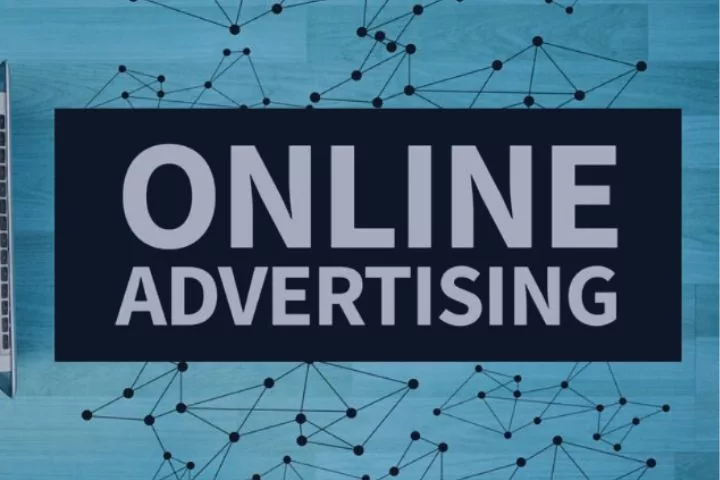Google Vs Facebook Ads – Which Online Advertising Is Suitable For Your Company

Familiarizing yourself with the depths of online advertising, such as Google and Facebook ads, creating the ads, and monitoring their success is a lot of work – and can cost a lot of money. Then we can
Experts, therefore, advise checking which advertising is worthwhile for each company in advance. The following four questions will help.
Query 1: What do I want to achieve?
The most significant difference between Google Ads and Facebook Ads: is the concerns of the users of the respective platforms.
While people search for specific terms on Google, they want to communicate and exchange information privately on Facebook. Therefore, different things can be achieved with Google and Facebook ads.
What are Facebook ads suitable for:
- draw attention to a new product;
- Excite customers about well-known products or services;
- build a brand.
So Facebook ads are a marketing tool. In the best case, entrepreneurs could open up new target groups.
Example: A confectioner opens an online shop through which he wants to sell photo cakes in addition to the analog business.
A Facebook ad can help to spread the word about the product and get the potential target group to want it in the first place. The good thing: Thanks to the many filter options on Facebook, it is straightforward to control who sees the ad.”
For example, the confectioner can create an entertaining mini video that clarifies why a photo cake makes every school enrollment party something special.
And then show that video to moms with 5- or 6-year-old kids a month before school enrollment dates. After that, 1,000 mothers will not buy a cake.
But the product can get stuck in people’s minds and create a need for it. Like almost every marketing campaign, Facebook ads require staying power.
What Google Ads are suitable for in Google Search:
- Show suitable offers to customers who have a specific purchase request;
- make your offer more visible compared to competing products;
- increase sales.
Anyone who places an ad on Google is addressing people at a different point in the buying process than Facebook users: the desire, the desire to buy is already there, and the potential customer has usually already obtained detailed information. That’s why entrepreneurs can use Google Ads as a sales opportunity for online advertising
Example confectioner: Customers who google order a cake with a photo motif can easily be seduced by a well-designed and placed Google ad with a discount offer or an exceptional service to click on the new online shop. Unlike the Facebook user who doesn’t even know that a themed cake is a top thing.
Query 2: What exactly is my product – and which platform does it fit?
If entrepreneurs know what they want to achieve, i.e., whether Facebook or Google is the better online advertising environment, you should check whether the product fits thematically.
For example, everything that has to do with private topics, with pleasure, consumer knowledge, shopping, hobbies, and travel is clicked well on Facebook.
That’s why Facebook ads are a suitable marketing and online advertising tool for anyone who wants to publicize B2C products or services without much explanation – such as confectioners, interior designers, and facade painters.
On the other hand, to increase sales, Google Ads for B2C providers are also suitable for well-explained online products.
For B2B providers, on the other hand, Google is the most suitable platform. Because: Facebook is a social network we commonly use in our free time.
Most users don’t want to have anything to do with work. For this reason, Facebook ads for business offers only have a chance in individual cases.
No HR employee clicks on a Facebook ad for team building offers in the evening. And no baker’s clerk on a video, no matter how funny, for a new wholesaler. You google something like that.
Query 3: How likely will a Google or Facebook ad be successful for my product?
Do the goal, platform, and product fit together? Then entrepreneurs should check the probability that the target group can be successfully addressed via an ad.
The following applies to Facebook ads: The smaller the target group, catchment area, and profit margin, the higher the costs and the more difficult it is to advertise successfully.
If the baker from London wants to make a new role better known, a Facebook ad is useless. Because even if the advert is well done and clicked, no one drives to London for a new type of roll from the surrounding area. And the regular customers also find out about it without an ad – in the store.
According to the expert, the intended target group should be at least five digits. That’s why a Facebook ad can work for a big city bakery with several branches – as long as the effort, costs, and possible profit margin are in a good balance.
Online advertising is much cheaper than any print ad in the local newspaper. Nevertheless, a baker must sell many more rolls to make it worthwhile.
That means it would make more sense than placing Facebook ads for gluten-free rolls with a small profit margin, for example, to advertise a new, higher-priced vegan cake range.
In India, for example, there are likely to be many vegans – and some of them are willing to cycle to the next-door district for a piece of cake. To try as a pastry chef.
In addition, everything that can be ordered online is potentially well suited for marketing via Facebook ads – because the target group and catchment area are automatically large.
If you want to advertise using Google Ads instead, you should ensure that your offer matches search terms that potential customers google – and that the ad picks up these search terms.
Query 4: Are other forms of online advertising more promising than Google Ads and Facebook Ads?
Even if, after answering the first three questions, entrepreneurs conclude that an advertisement via Facebook, Google, or a combination of both platforms would work well, they should think twice about whether another form of advertising might not be even more promising – with less financial outlay.
My experience: Smaller companies, such as carpentry shops, painting companies, or IT service providers, often find it much more beneficial to use their own Facebook page initially and intensively than to place Facebook ads.
Or, instead of placing a Google ad, ensure your website is well-written, SEO-optimized, and the business profile on Google My Business has all the information and customer reviews.
According to the expert, this last check also offers entrepreneurs the opportunity to put themselves in the position of the target group again – and to ensure that no opportunities are overlooked.
For example, a management consultant specializing in succession planning in small companies could theoretically place a Google ad.
After all, the target group and catchment area are huge, and search terms such as “management consultant” and “succession” are pretty conclusive.
However: Succession regulations in companies are something delicate and sometimes private. Who among us would rely on a Google search for that? Regarding things like this, we tend to trust recommendations from our network.






